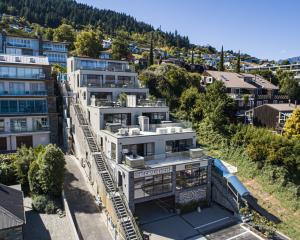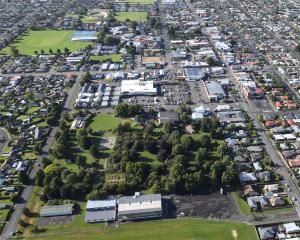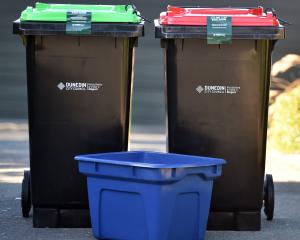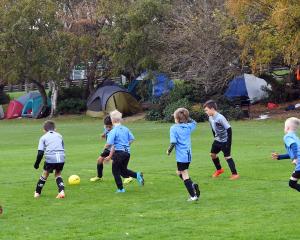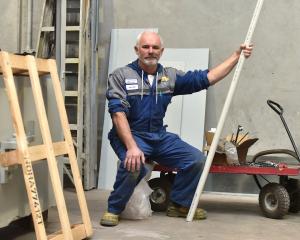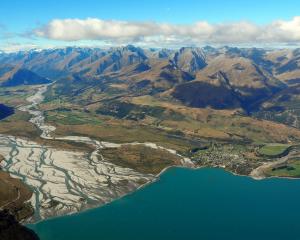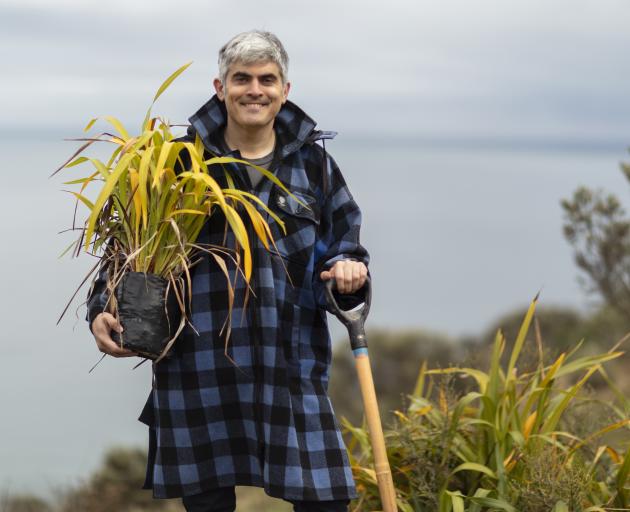
Maybe it’s a once-a-DJ thing, but Aaron Hawkins’ enthusiasm for his latest project seems to ramp up another notch when he gets to the bit about the van they’ve bought.
Among other important qualities, it is wired for sound.
"We’ve bought an early ’90s luxury Japanese van," he enthuses. "The Delica Super Exceed."
It has temperature-controlled sake storage, he explains, sharing a level of detail that elevates the van beyond its role in the enterprise.
"The factory setting stereo comes with a karaoke unit built in and the seats in the back will turn in like captains’ seats, so everyone is facing each other."
If you’ve gone straight to Scooby-Doo and the prospect that Ōtepoti Dunedin’s former mayor is setting up a paranormal crime busting unit, you’d be wrong.
But, fair enough, it is a go-anywhere kind of whip, and that’s the point.
In the very near future, the plan is for the surefooted Delica Super Exceed, with perhaps Weezer’s cover of Africa being approximated in the back, to carry paying customers from the Pukerua train station to the wild, accessibility challenged Wellington east coast for a night at Escarpment Domes.
It’s what Hawkins is doing next.
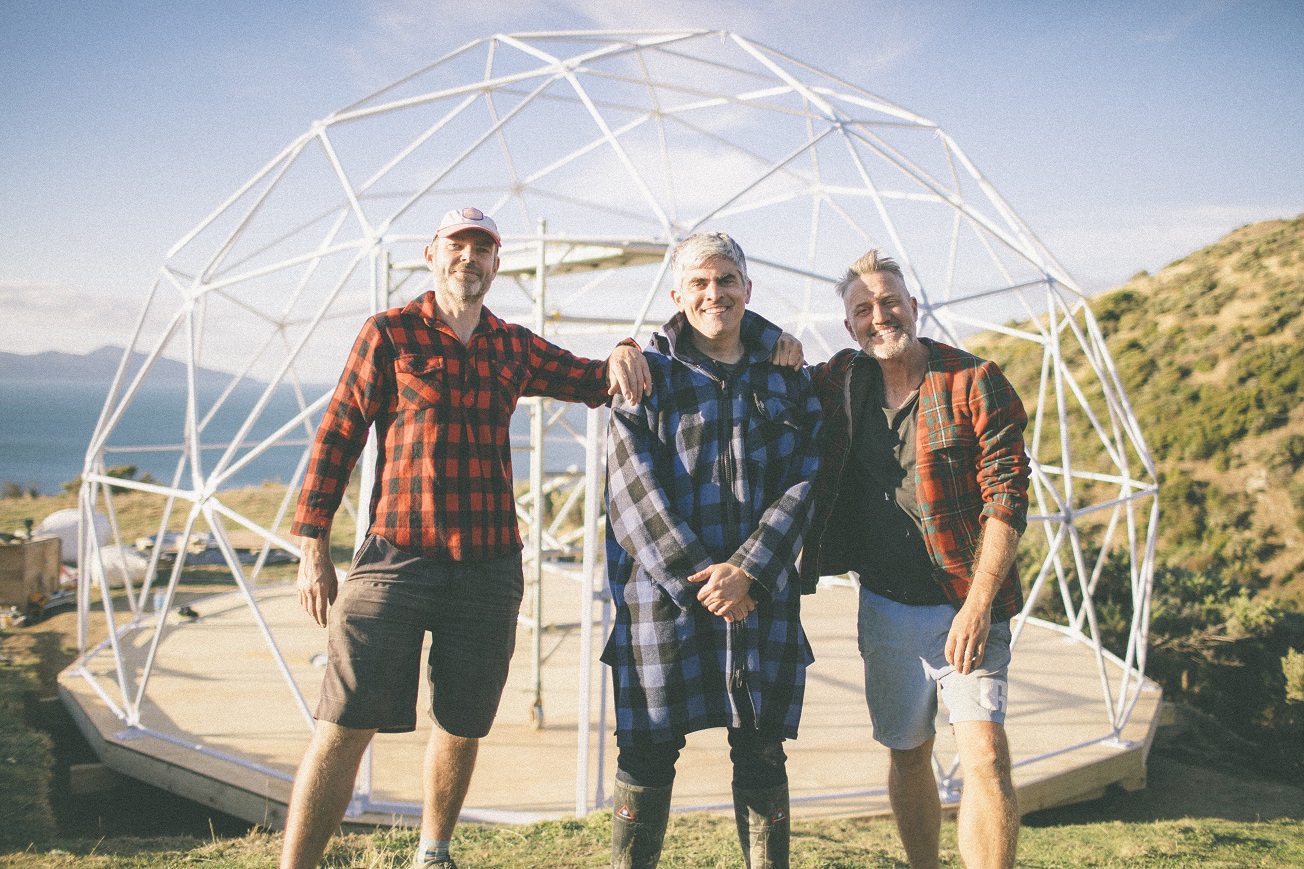
Together with a couple of old Dunedin chums, he’s set up Floruit, an enviro-tourism, cum carbon farming, cum permanent biodiversity restoration rewilding Pledge Me project, and its first manifestation is Escarpment Domes on 8ha of precipitous retired farmland.
The scrubby coastal hill country plunges down to the Tasman, providing views out towards Kapiti Island and the Tasman beyond. Anyone who has walked the Escarpment Track, to the property’s north, will appreciate the sort of landscape we’re talking about. A stumble could very easily gain momentum.
On a handful of carefully chosen sites, they’ve erected boujee accommodation domes. It’s glamping. But, as you’d expect from Hawkins — and indeed the others involved — not just glamping.
The rugged outdoorsiness of the project seems to suit Hawkins, if appearances are any guide. The grey that thoroughly colonised his thick thatch of hair during the council years remains, but he’s looking relaxed.
He recently re-emerged from behind the beard that followed closely on his release from the mayoral chains — he finally lost that argument with his wife, apropos the Hemingway impersonation, but is happy enough that he’s ticked off a lifelong grooming ambition.
And, when he arrives at a Dunedin cafe to chat, he’s water-bottle-in-hand freshly off the treadmill. Not, like, life’s treadmill, but an actual one, in a gym.
"I got to a point about a year ago where I had to do something, physical," he says, a little ruefully.
"I decided to throw myself back into training, it was pretty grim for a while.
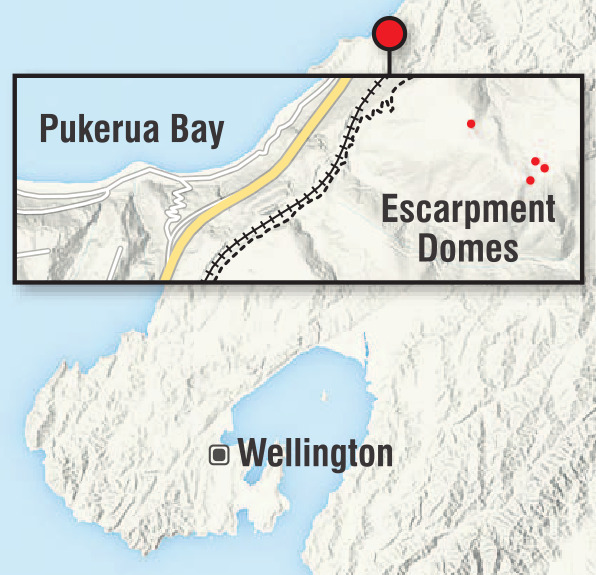
Because when he can, weekends have been on the land, doing the mahi.
"Literally putting up frames and hanging up insulation, collecting 19th century baths and getting our hands dirty and planting trees. So that’s been good. It’s a very different way of working, certainly," he observes.
This all started, for Hawkins at least, immediately off the back of his election loss. A tough night. Devastating, he said at the time.
But what are friends for if not to ring you up at such moments and say "come and do this other cool thing".
Which is what Hawkins’ friend Hugh Evans did — prefacing his offer with "Thank God you lost", in Hawkins’ telling.
"Yeah, maybe the week after the election, Hugh called me and asked me if I wanted to come in as a co-founder of the business."
It was welcome, a blessing, no question, because elections are brutal.
"They give you seven days to figure out how you are going to pay your mortgage, if that is a thing that you have."
Evans, who was best man at Hawkins’ wedding and he at his, is also one of the founders of Thankyou Payroll, the social enterprise established in a Port Chalmers garage to do other people’s business admin and actual good at the same time.
The phone call wasn’t just a lifeline from a close friend, Evans had an eye on Hawkins’ local body expertise.
What they are trying to do is different and someone who speaks planning is handy, Hawkins says.
"The site in Pukerua Bay is an outstanding natural landscape zone. So, it’s quite restrictive in terms of what you can do. And so, we had to make the case that by virtue of what we’re doing on the land, we were contributing to the values that they were trying to maintain and enhance on the site, by planting and pest control and all those sorts of things."
The third leg of the Floruit stool is Blair Boswell, who went to Otago Boys’ with Evans and was previously chief operating officer for Todd Solar.
Together they’ve leased the 8ha block from a massage therapist Evans happened upon — he lives up that way — and have resource consent for the Escarpment Domes trial project for five years.
"We’ll spend that time doing native planting and pest control and fencing and all those bits and pieces that will survive as a legacy on that bit of land whatever happens," Hawkins says.
The vision though, is grander.
The trio plan to make this the first of a series of similar projects, leveraging tourism to support biodiversity restoration of marginal blocks of land. Escarpment Domes is the pilot, testing the appetite for the accommodation side of the business, but the goal is to ramp up to working with 200ha to 300ha parcels of land, that will be reforested and set aside in perpetuity to rewild away forever.
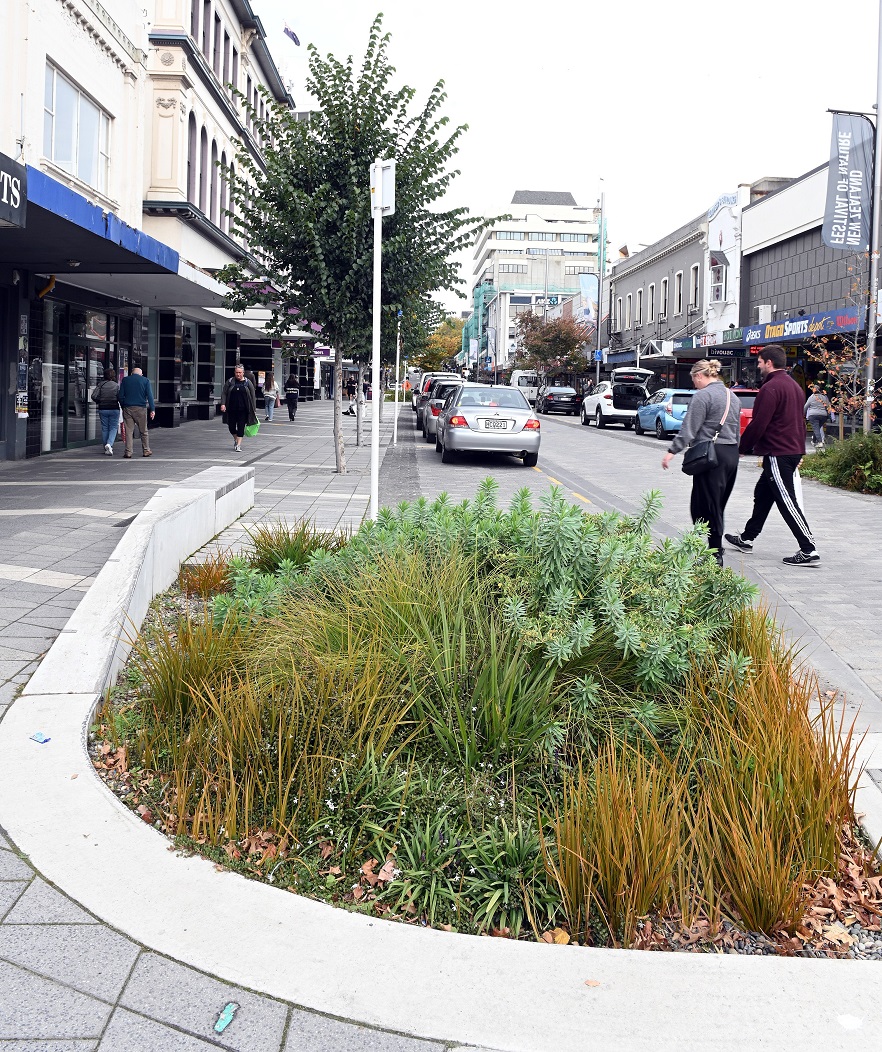
And indeed, there have already been expressions of interest from other land owners.
Perhaps the most innovative and novel element here, is the plan to have these newly bio-rich oases exit to public stewardship — a familiar model in Europe, Hawkins notes.
"Essentially, the revenue from the business buys out any investors that there have been. So they go in knowing that at some point they will be bought out by the business and then the asset gets vested into some kind of public stewardship in perpetuity."
It’s the path Evans is following with Thankyou Payroll, Hawkins explains, so that in a few years’ time, once the process is complete, it will exist purely as a philanthropic organisation rather than a business focused on returning dividends to the shareholders.
For Floruit’s landscape restoration projects, they’re looking at a timeframe of about 20 years to get there from here.
We’re not talking ecosanctuaries — Orokonui or Zealandia Te Māra a Tāne style.
"But the broad goals are the same, which is to breathe new life into marginal or semi-retired farmland and think about different ways of reimagining land use to help deal with our biodiversity and climate challenges."
In parallel with that, there’s an eye to how our vast visitor industry might change to better align with those imperatives.
"New Zealand is very reliant on tourism as an industry. How can we rethink the visitor economy in ways that are genuinely regenerative as opposed to more extractive models?" Hawkins asks.
Travellers want that too, he says, both domestic and international are only becoming more conscious of their footprint.
But it’s mainly about trees.
"This is really just an elaborate way of trying to make native reforestation commercially viable in the short to medium term, right? Because it isn’t. Because it’s slow growing. I mean, that’s why we had tens of thousands of hectares of pine forest planted last year. Because all of the market incentives encourage you to do that."
Once the trees are old enough and big enough they’ll be expected to pay their own way. Carbon accounting is the longer-term business model, and is expected to generate revenue to do more good.
The numbers stack up, Hawkins says.
"It’s obviously dependent on what the policy settings are of any particular government on any particular timeline, but that’s certainly the case when we started out, that it was feasible."
So, New Zealand’s first Green mayor is still batting for team taiao and the associated kaiao.
It remains the stuff that gets him out of bed.
As a first-term councillor, back in 2015, he rose to speak at a Ministry for the Environmental consultation meeting on carbon reduction targets, his voice cracking.
"I want to acknowledge the anger that’s felt by my generation and people younger ... that the question of even having children is such a moral and ethical dilemma," he said of the pressures the planet faces.
He now has a son, and very much sees the project in intergenerational terms.
"As a dad, you can think about 2040 in a very intergenerational way, very immediately, in terms of just your own family, your own son.
"That’s it, eh. It’s like, what are we prepared to leave? This is an answer to that."
It’s a perspective that dawned on him at least in part by doing.
"I think about this often driving past Pete Hodgkin’s patch in Sawyers Bay. I’ve been involved in many community planting days up there and it all seemed kind of small and insignificant at the time, and now there is an amazing native forest that you feel like you have contributed to, so you have a sense of connection and a sense of ownership, I guess, over that, and that’s what we’re trying to do with this project."
The next generation is definitely on board, Hawkins’ son.
"Yeah, man, he is super excited about it. He has asked me a lot about when we get to go and plant the trees there — he was very disappointed to learn that we were planting trees over the weekend without him."
Hawkins recalls that fellow Green Party council representative Marie Laufiso often talks about seven-generation thinking, the "Great Law" of the Iroquois.
It’s nice to be able to lift the eyes to that sort of horizon, he says.
"As opposed to, I mean, councils essentially operate on a three-year time horizon. Ten or three-year cycles. And that’s not long term in any meaningful sense of the word."
That said, he’s been enjoying the emerging new landscapes along George St.
It was difficult to know from the plans, he says, how the changes to George St would translate into people’s experience of the area. But as the gardens take shape and the playground goes in, that’s becoming clearer.
"The plantings are looking great, not just for the trees but I think the landscaping and the rock and all of those things are a great asset," he says.
"We are working in the rural fringe if you like, on [the Escarpment Domes] project, but it is equally if not more important, for many reasons, to be greening our urban environment."
The blue-green infrastructure, of which George St’s new plantings are a part, contributes to the big picture of storm water management and water quality in a changing world, he says.
"It is all part of the same jigsaw puzzle."
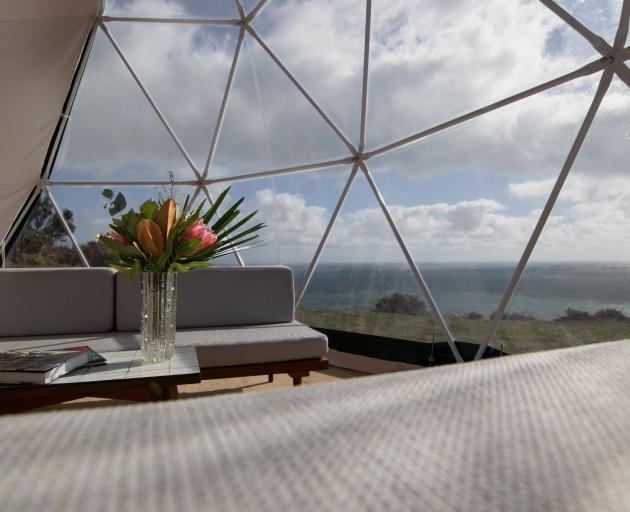
"It was just an opportunity that presented itself — to be able to make some contribution to the world we see around us."
Coming out of it, he was keen to take on projects that allowed him to keep on doing that in a different realm.
"That’s essentially how I see this. Making a tangible contribution to our biodiversity crisis and rethinking our tourism industry and reimagining land use. Doing that from a social enterprise perspective, rather than from a policy and governance perspective, which is what I’d been doing 10 years or so before that."
On the back of that 10 years there was a good bit of speculation that Hawkins might pursue a more downtown role in Te Whanganui-a-Tara and he admits it was raised with him.
"There was no shortage of people who wanted to convince me to stand for Parliament, but I just didn’t have the capacity to do that.
"I just didn’t have the capacity to go into another campaign immediately. And it is not the most family friendly place to work."
He remains a member of the party, but says he hasn’t been particularly active.
"I needed a break," he says with a laugh.
And given the make-up of the Parliament, his decision is looking pretty good. Opposition is hard yards for few rewards.
"Then you get in for three, six, nine years, whatever, to do something, and it all gets thrown out in 100 days."
It might well be that there are better opportunities away from Lambton Quay, especially in this moment.
"Yeah, I mean, in terms of supporting the natural environment I think in the short term, medium term the private sector is going to have to demonstrate leadership — given that policy settings in Wellington aren’t going to do that."
Those who care will have to think about how they can get things done in the absence of support from our public institutions, he says.
"And who knows how long that will last, but certainly the private sector isn’t as constrained by changes of government policy as local government might be, or our public agencies."
Another crack at local body politics, sometime, Hawkins is not ruling that out entirely.
"Never say ‘never’," he says with a grin that radiates mischief. It might be a mask for ambition, or it might just be the way he smiles.
However, he’s clear that Floruit is his day job for now.
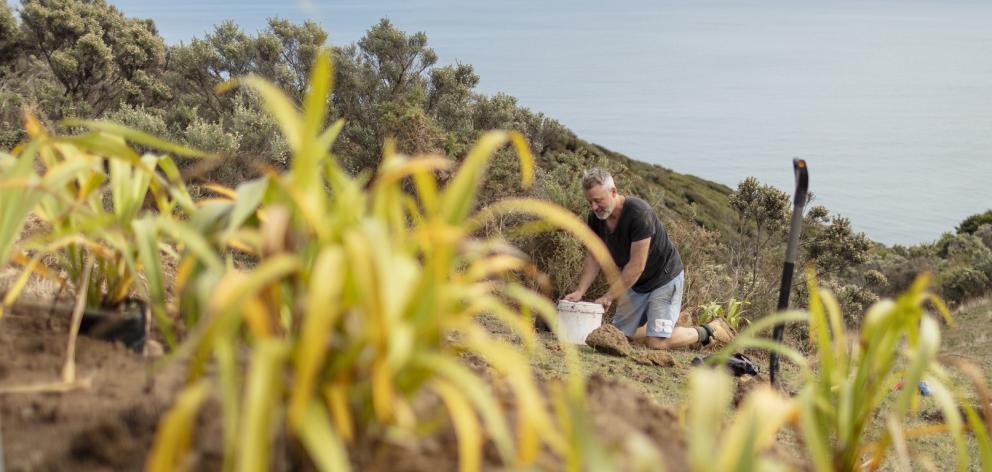
Back at the escarpment the four domes are taking shape.
"The bigger, 8m one has a mezzanine level, the master bedroom is upstairs, and then accommodation and more beds downstairs, and looks straight out across to Kapiti."
There’s no bad view, he says, selling it.
The kitchen is going in and a solar array is on its way.
"It is all off grid ... we’re using a ram pump to pump out water from a spring — which is crazy technology that I don’t really understand."
A long-time arts activist, Hawkins is also responsible for the intentional aesthetic content of the destination.
This is "curated accommodation".
"So, we’re working with artists and commissioning work as a way of building connection between people and the land."
"Some of that will be sculptural and some of that is inside the domes, like a floor-to-ceiling cut-out piece that [Dunedin artist] Anna Muirhead is doing, which is kind of a forest scene from canopy to mycelium level."
There’s some remnant forest on the land where they’re planning to commission a surround-sound aural experience made for sunset.
"It’s all very bootstrap at the moment. And we’re leaning pretty heavily on our friends to help us."
Having the artists involved provides another layer of storytelling, he says.
Story-telling is central to the Floruit-Escarpment Domes approach.
Its membership model, being launched through Pledge Me, aims to keep people coming back — remain financially and emotionally invested, connect, watch the forest grow and be part of the story.
Among the trees at Escarpment Domes visitors can connect with are extant stands of kohekohe.
Hawkins is a big fan of the large trees and not just because he hadn’t previously encountered them — they don’t grow much south of Marlborough.
Kohekohe have the unusual ability to flower directly from their trunks — all of a sudden, there from nothing, fragrant blooms.
A bit like a metaphor for something.

